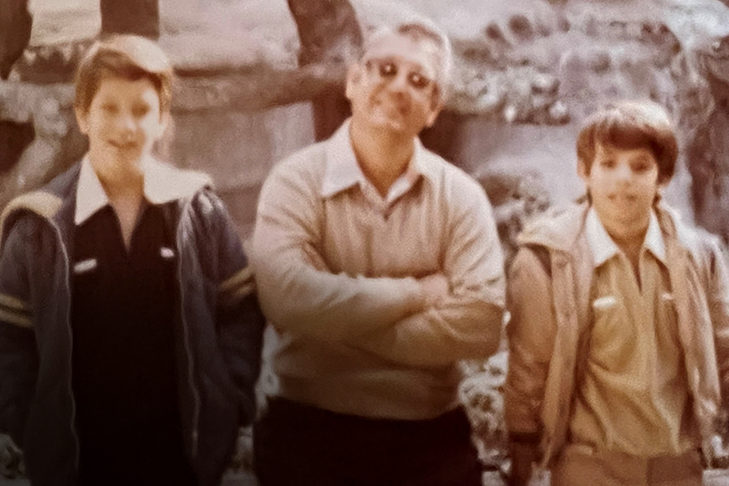Show Menu
Choose Your Location
You are now leaving the Viatris page for a Viatris affiliate site or third party site that is solely responsible for its content, including its compliance with guidelines applicable in certain geographies. Links to Viatris affiliate sites and third party sites are provided as a resource to our visitors and may not be governed by the same regulatory requirements applicable to this site and unaffiliated third party sites are subject to their own terms and data protection notices and practices. Moreover, if their third party site is subject to other country laws, regulatory requirements, data protection requirements or medical practices may differ between countries and the information provided therein may not be suitable for use in your country.

Voices of Viatris
By: Niki Kapsambelis
Sept. 26, 2022
 |
Jose Cotarelo |
But for family photos that were sent to relatives in the US out of Cold War-era Cuba, Jose Cotarelo would not have any memories of the early years he lived there.
He arrived with his parents and brother in Florida at the age of 7, speaking only Spanish. Other family members who made the same journey years earlier welcomed them to the United States, and from that point on, Jose considered himself fully American.
But Jose, who is now Viatris’ head of North America, finds that his connection to two different cultures informs his work and benefits his approach to business by helping him to reevaluate biases and develop empathy.
“Any heritage is valuable to me. It gives you the realization that there are other perspectives,” he said. “I love to learn. And I think being from a different place woke that up in me early on: there are other things out there. So I love to know what all those other things are.”
His father was a political prisoner in Cuba for about 12 years; his mother waited for her husband’s release and was his constant visitor, frequently facing some very harsh circumstances during those visits: “they had an amazing romance,” Jose said, adding that they arranged to be married during his father’s time in prison.
After his father’s release, they started a family, then joined other relatives in the U.S. in 1980. Jose recalls how he was placed in an advanced math class, where a classmate who was fluent in Spanish translated for him until he learned enough English to understand on his own. He graduated as valedictorian from his high school, attending Harvard as an undergraduate followed by business school at Stanford.
“My family always believed in very hard work,” he said. “It’s sort of the immigrant’s story; they instilled that in myself and my brother. They believed in the value of having a work ethic and the American promise that work ethic helped create opportunity.”
His heritage flows through both his professional and personal lives.
He recalls whitewater rafting on the Zambezi River separating Zimbabwe from Zambia near Victoria Falls. At the end of the journey, he climbed out of the river’s gorge and emerged in a village where he knew nothing about how the people there lived, and he marveled at the thought that the same was true of them -- his own way of life was completely foreign to the villagers.
His sense of wonder and curiosity was piqued, as it always is when exploring new ideas: “Life, a lot of it, is around awareness: realizing perspective,” Jose said. “I think it’s a blessing and a benefit to know more than one culture.”